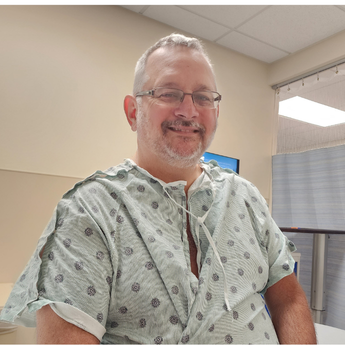The more researchers and doctors learn about cancer, the more they are beginning to understand that there isn’t one standard approach to treating it but many factors to consider to come up with the best treatment plan for each person. New research is adding to this knowledge and instead of treating a cancer based on its location in the body, clinicians are starting to personalize and improve treatments for individual patients based on genomics.
Genomics is the study of a person’s DNA. Unlike genetics, which looks at the function of a single gene, genomics looks at all of the genes and attempts to understand how their combined efforts influence the body. Genomic testing for cancer patients helps to identify unique aspects specific to that patient and that tumour that will help oncologists use treatments that specifically match that tumour.
In Canada, the BC Cancer Agency’s Breast Cancer Research Initiative is at the forefront of this personalized approach to cancer treatment. With funding raised by the BC Cancer Foundation, the research aims to sequence the genome of every breast cancer patient’s tumour at the time of diagnosis, province-wide. “This will mean clinicians can customize treatment for every patient matching genomic mutations with known or new combinations of therapies, expanding patient outcomes research to understand at the genomic level why some breast cancer patients relapse when others do not, and test and develop tailor-made cancer drugs targeted for each patient’s unique cancer.”
In another initiative called Personalized Onco-Genomics, or POG, the BC Cancer Agency is giving hope to people with incurable metastatic cancer who have run out of conventional treatments. By sequencing and analyzing their genomes, researchers and doctors are often able to find new approaches or drugs to help these patients.
Zuri Scrivens, a metastatic breast cancer patient, was referred to POG. Genomic testing revealed that a diabetes drug could help her, and her cancer is now in remission.
Zuri’s case is exceptional. In the 40 percent of cases in which POG makes a difference, few have the spectacular response that she has had. Still, she gives hope for others facing a cancer diagnosis.
For more information on POG, view the CBC documentary Cracking Cancer at http://www.cbc.ca/natureofthings/episodes/cracking-cancer.
Personalized medicine studies are also taking place in other provinces, such as IMPACT (Integrated Molecular Profiling in Advanced Cancer Trial) and COMPACT (Community Oncology Molecular Profiling in Advanced Cancer Trial), two clinical trials run by the Princess Margaret Cancer Centre in Toronto.
Thanks to advances in equipment and technology genomic testing is now becoming feasible. “Sequencing the first human genome cost about $1 billion and took 13 years to complete; today it costs about $3,000 to $5000 and takes just one to two days.”
For more information on how genomic sequencing could help you as a cancer patient, ask your oncologist.







